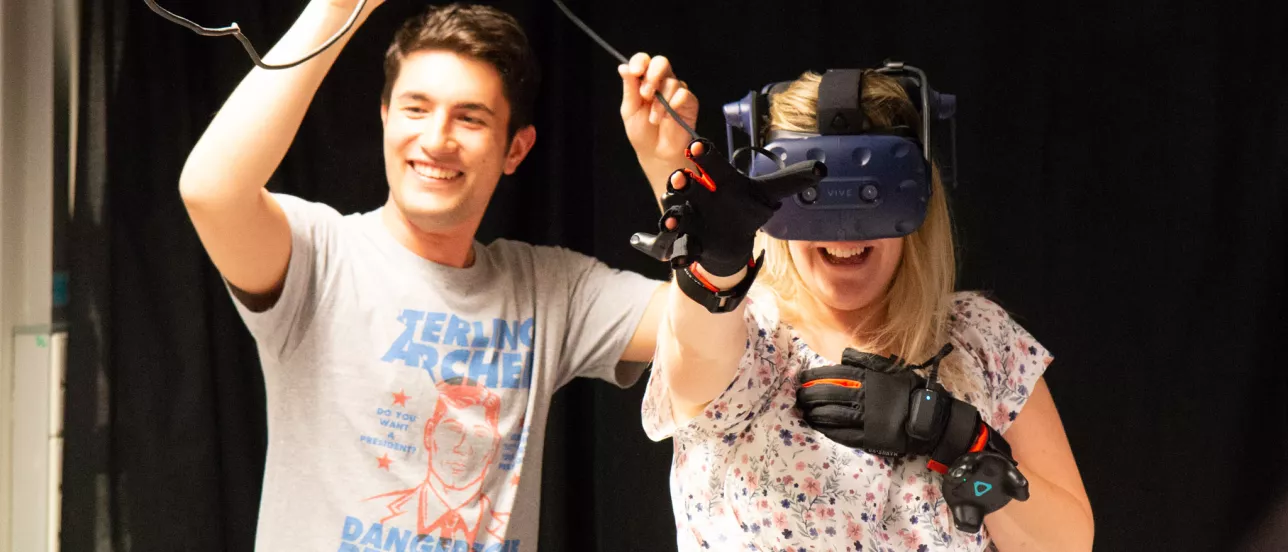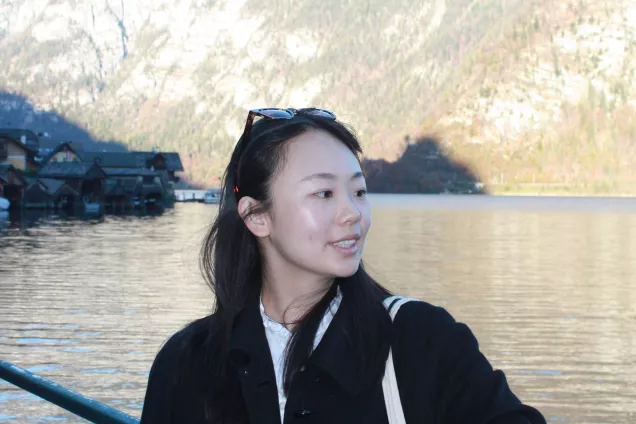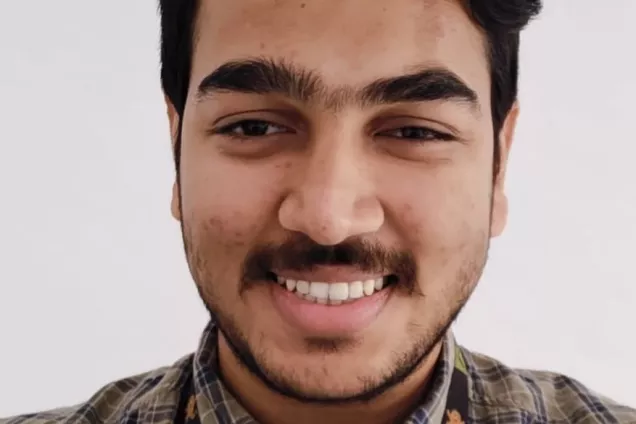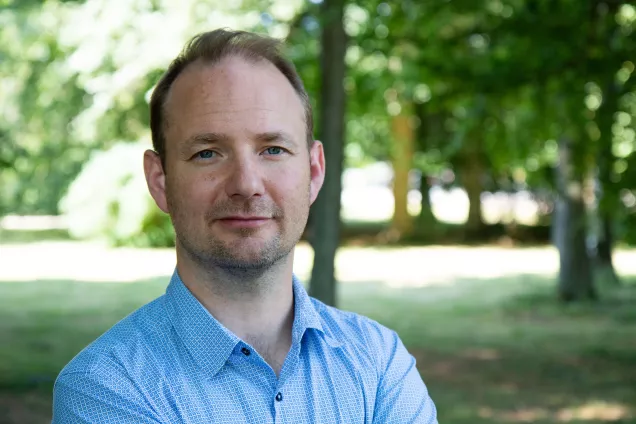Virtual Reality and Augmented Reality - Master's Programme
Master's programme · 2 years · 120 credits

Description
The demand for new approaches using Virtual Reality (VR) and Augmented Reality (AR) are rapidly increasing. Apply to this Master’s programme offering a truly holistic approach to VR/AR technology in a world-class, multi-disciplinary research and learning environment and be part of exploring new possibilities!
Recent advances in computer graphics, sensors and screen technology give us unprecedented possibilities to completely immerse humans in virtual environments or augment real environments. VR/AR constitute a completely new computing paradigm finding its way into applications for industry, health care, education, entertainment etc. The Master’s Programme in Virtual Reality and Augmented Reality aims at educating qualified professionals who can design, implement and evaluate VR/AR applications while also considering the ethical, cultural, and social implications of such technology.
Programme structure
Courses in e.g. computer graphics, image analysis, interaction design and VR/AR are blended into a unified learning experience that covers the whole range from enabling technologies to the final user experience of VR/AR applications.The core of the programme is the assumption that VR/AR technology is best learned when students fuse theoretical knowledge and technical skills with design thinking. Active experimentation is a fundamental pillar of the master's programme, with laboratory work and project assignments in Lund University's top tier laboratories. Examples of concrete content in the Master's programme include:
- Computer graphics and its implications for VR/AR applications
- Image analysis and its applications in VR/AR tracking
- 3D interaction in VR/AR applications
- User-centred design methodology for VR/AR development
Local and global companies are strongly committed to contributing to the Master's programme in various ways. This creates huge opportunities for project assignments and master degree projects, solving real world problems by applying VR/AR technology in a creative and innovative manner.
Programme modules/courses
The programme is carefully tailored and contains mainly mandatory courses.
Semester 1: Image Analysis (7.5 credits), Computer Graphics (7.5), Interaction Design (7.5), High Performance Computer Graphics (7.5)
Semester 2: Virtual Reality in Theory and Practice (7.5), Computer Vision (7.5), Theoretical Perspectives in Interaction Design (7.5), Universal Design, Theory and Project (7.5)
Semester 3: Augmented Reality Interaction (7.5), Extended Reality, continuation course (7.5), Working Environment Project Course (7.5) and one of the two mandatory-electives; Usability Evaluation (7.5) or Modelling and Learning From Data (7.5)
Semester 4: Master Degree Project (30)
More information on each course at the Faculty of Engineering website
Career prospects
Graduates of the Master’s Programme in Virtual Reality and Augmented Reality will be extremely attractive for industry in the near future. Large tech companies see VR/AR as the next natural step in computing. At the forefront of development is Meta, former Facebook, with its vision of “the Metaverse”, a network of virtual worlds focused on social connection, believed by many to be the future of the Internet.
There is a strong development towards small and medium-sized enterprises (SME) specialised in VR/AR technology based on a quickly growing demand for such solutions from traditional manufacturing companies as Volkswagen Group, Tetra Pak and Atlas Copco. Local examples of SMEs with strong VR/AR focus are One Reality, Warpin Media, Devoteam Creative Tech and Virtuell Design.
The VR/AR research field is growing quickly, providing excellent opportunities for an academic career. The number of doctoral student positions is increasing all over the world and the Master’s programme provides qualifications for research studies at PhD level.
Programme sheets
Closed for applications
Application opportunitiesClosed for applications
Learn more about our application periods and when to apply for studies at Lund University.
Programme overview for this Master's
See the programme overview for Virtual Reality and Augmented Reality on the Faculty of Engineering’s website.
What industry representatives say
"...AR and VR are not far from reaching a tipping point, ready to change how we interact with the internet and each other. Join this Master's programme to be a part of developing this future."
– Daniel Akenine, Microsoft
Watch videos with our interaction design and VR researchers on YouTube
Contact
Programme Director
Mattias Wallergård
Email: msc [dot] vrar [at] lth [dot] lu [dot] se
International Coordinator
Carl-Johan Andersson
Email: msc [dot] vrar [at] lth [dot] lu [dot] se
Academic Advisor
Email: academic_advisor [at] lth [dot] lu [dot] se
Requirements and selection
Entry requirements
A Bachelor's degree in computer science, computer engineering, or equivalent. Completed, dedicated courses in mathematics of at least 30 credits/ECTS. The mathematics courses must include calculus in one and several variables (5 credits/ECTS), linear algebra (5 credits/ECTS), systems and transforms (5 credits/ECTS), and probability theory and statistics (5 credits/ECTS). Basic skills in object-oriented programming (at least one course of 5 credits/ECTS). English 6.
Selection criteria
The selection is based on academic qualifications.
English language requirements
Most of Lund University’s programmes require English Level 6 (unless otherwise stated under 'Entry requirements'). This is the equivalent of an overall IELTS score of 6.5 or a TOEFL score of 90. There are several ways to prove your English language proficiency – check which proof is accepted at the University Admissions in Sweden website. All students must prove they meet English language requirements by the document deadline, in order to be considered for admission.
How to prove your English proficiency – universityadmissions.se
Country-specific requirements
Check if there are any country-specific eligibility rules for you to study Bachelor's or Master's studies in Sweden:
Country-specific requirements for Bachelor's studies – universityadmissions.se
Country-specific requirements for Master's studies – universityadmissions.se
Apply
Start Autumn Semester 2025
Day-time Lund, full time 100%
In English
Study period
1 September 2025 - 6 June 2027
Application
Closed for applications
How to apply
Lund University uses a national application system run by University Admissions in Sweden. It is only possible to apply during the application periods.
Step 1: Apply online
- Check that you meet the entry requirements of the programme or course you are interested in (refer to the section above on this webpage).
- Start your application – go to the University Admissions in Sweden website where you create an account and select programmes/courses during the application period.
Visit the University Admissions in Sweden website - Rank your programme/course choices in order of preference and submit them before the application deadline.
Step 2: Submit documents
- Read about how to document your eligibility and how to submit your documents at the University Admissions in Sweden website. Follow any country-specific document rules for Master's studies or Bachelor's studies
Country-specific requirements for Bachelor's studies – universityadmissions.se
Country-specific requirements for Master's studies – universityadmissions.se
- Get all your documents ready:
- official transcripts and high school diploma (Bachelor's applicants)
- official transcripts and degree certificate or proof that you are in the final year of your Bachelor's (Master's applicants)
- passport/ID (all applicants) and
- proof of English proficiency (all applicants).
- Prepare programme-specific documents if stated in the next paragraph on this webpage.
- Upload or send all required documents to University Admissions before the document deadline.
- Pay the application fee (if applicable – refer to the section below on this webpage) before the document deadline.
* Note that the process is different if you are applying as an exchange student or as a part of a cooperation programme (such as Erasmus+).
* If you have studied your entire Bachelor's programme in Sweden and all of your academic credits are in Ladok, you do not have to submit transcripts or your diploma when applying for a Master's programme. However, there may still be other documents you need to submit! See the link below.
* Svensk student?
Läs instruktionerna om att söka till ett internationellt masterprogram på lu.se
Programme-specific documents
In addition to the documents mentioned under Step 2, you must also submit the document 'Summary sheet’ when you apply to this programme. To do this you need to:
- Fill in our template.
- Save the template as a PDF.
- Upload the PDF to your account at universityadmissons.se.
Template for the summary sheet – Virtual Reality and Augmented Reality (PDF, 362 kB, new tab)
No additional programme-specific documents (such as a CV or letters of recommendation) are required when you apply for this programme.
Tuition fees
Non-EU/EEA citizens
Full programme/course tuition fee: SEK 340 000
First payment: SEK 85 000
Citizens of a country outside of the European Union (EU), the European Economic Area (EEA) and Switzerland are required to pay tuition fees. You pay one instalment of the tuition fee in advance of each semester.
Tuition fees, payments and exemptions
EU/EEA citizens and Switzerland
There are no tuition fees for citizens of the European Union (EU), the European Economic Area (EEA) and Switzerland.
Application fee
If you are required to pay tuition fees, you are generally also required to pay an application fee of SEK 900 when you apply at the University Admissions in Sweden website. You pay one application fee regardless of how many programmes or courses you apply to.
- Paying your application fee – universityadmissions.se
- Exemptions from paying the application fee – universityadmissions.se
- Convert currency – xe.com
*Note that there are no tuition or application fees for exchange students or doctoral/PhD students, regardless of their nationality.
Scholarships & funding
Lund University Global Scholarship programme
The Lund University Global Scholarship programme is a merit-based and selective scholarship targeted at top academic students from countries outside the EU/EEA.
Lund University Global Scholarship
Within the framework of the Lund University Global Scholarship programme, the University also offers the African Research Universities Alliance (ARUA) Scholarship targeted at top academic students from selected African research universities.
Swedish Institute Scholarships
The Swedish Institute offers scholarships to international students applying for studies in Sweden at Master's level.
Scholarship information on the Swedish Institute website
Country-specific scholarships and funding options
Lund University has agreements with scholarship organisations and funding bodies in different countries, which may allow applicants to apply for funding or scholarships in their home countries for their studies at Lund University.
External scholarships
Testimonials about this Master's

Meet our student ambassador Ziyin
Read her testimonial and chat with her via Unibuddy.

"Mutual respect between professors and students"
Yas from Iran

"A very warm and strong learning environment"
Anurag from India

A word from the programme director and researcher
Mattias Wallergård